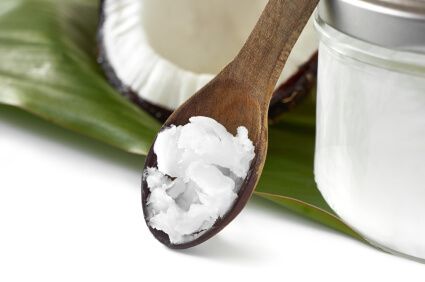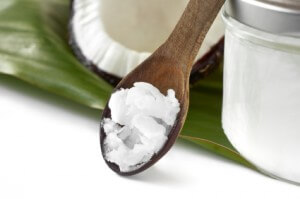
While you may be convinced that coconut oil is a fad, it is a fad that has benefited people around the world for thousands of years, and one we feel is well worth exploring. Lauric acid has a long history of use in fighting pathogens, backed by research that is over 50 years. Coconut oil is the richest source of lauric acid on the planet.
There are numerous peer-reviewed studies noting the health benefits of one of nature’s most valuable gifts. If, after you read this article, you are still inclined to think that coconut oil is just a passing fad, we encourage you to try it – we believe you will become convinced of its value, as well.
Coconut oil is no stranger to people in the tropics, who have been using it for a very long time. Even when the anti-saturated fat war waged in America, it did not stop people in the tropics from benefiting from the healing powers of coconut oil.
Coconut oil is composed of medium chain fatty acids (MCT’s) which are not easily broken down or oxidized like polyunsaturated fat. This means that coconut oil does not cause any free radical damage, unlike polyunsaturated and dangerous trans fats.
The fact that most of our skin care products in this country are made from polyunsaturated oils explains why we, as a nation, suffer from so many skin complications. There is a great body of growing evidence to support the fact that topical application of coconut oil as well as consumption are highly beneficial.
Research
Coconut oil is natural, and that means that not many people want to conduct extensive research into its benefits. However, a study conducted in 2008 at the Skin and Cancer Foundation in the Philippines, compared virgin coconut oil and virgin olive oil in moisturizing dryness and removing bacteria from colonized Atopic dermatitis skin.
The study, a double-blind controlled trial, found that coconut oil was more effective than olive oil in killing bacteria, mostly because of its lauric acid content.
A 2009 study at the Division of Dermatology, Department of Medicine, University of California, San Diego, looked at the antimicrobial properties of lauric acid and its potential to heal acne. The results were favorable for using lauric acid in place of antibiotics for treatment of acne.
Vitamin D Helps Fight Against Skin Cancer
If you have ever known a Filipino person, you know that they likely have a lovely, youthful complexion and soft, wrinkle-free skin, despite the fact that they live in a climate that exposes them to the sun’s hot rays all year round. Skin cancer is virtually unheard of in the Philippines, where coconut oil is the main dietary oil used and the main ingredient in all of their skin care products.
In the United States, we run scared from the sun, covering every square inch of exposed skin with lotions, lathers and sprays thinking that we are doing the right thing to protect ourselves from the damaging rays of the scorching sun. We are constantly bombarded with reasons why we need to use sunscreen, which blocks out the skin’s ability to absorb vitamin D. Interestingly enough, vitamin D has been proven to prevent cancer.
Coconut oil is the main reason why people in the tropics can be in the sun and not experience skin cancer. Its healing antioxidant powers protect the skin from free radical damage. In addition, using coconut oil on the skin helps our bodies absorb other nutrients more effectively, such as vitamin E, which is another skin protecting antioxidant.
 Now, don’t think that you can be crazy and lay in the sun all day, even with coconut oil on your skin. You still have to be smart about the sun. Stay clear of the sun during the hottest time of the day between noon and 3pm, if possible. Vitamin D production is important, but it only takes a little while per day in the sun to get what you need.
Now, don’t think that you can be crazy and lay in the sun all day, even with coconut oil on your skin. You still have to be smart about the sun. Stay clear of the sun during the hottest time of the day between noon and 3pm, if possible. Vitamin D production is important, but it only takes a little while per day in the sun to get what you need.
The evidence that commercial sunscreen does more harm than good is very compelling. Sunscreen contains dangerous chemicals that keep the skin from breathing, and blocks beneficial sun rays. The false security that this multi-million dollar business provides is horrifying. Why not switch to an all natural, safe and effective alternative?
As always, we recommend using only extra virgin organic coconut oil.
-The Alternative Daily
Sources:
Novel antibacterial and emollient effects of coconut and virgin olive oils in adult atopic dermatitis. Dermatitis. 2008 Nov-Dec;19(6):308-15. Verallo-Rowell VM, Dillague KM, Syah-Tjundawan BS. Skin and Cancer Foundation, Pasig, Philippines.
Antimicrobial property of lauric acid against Propionibacterium acnes: its therapeutic potential for inflammatory acne vulgaris. J Invest Dermatol. 2009 Oct;129(10):2480-8. Epub 2009 Apr 23. Nakatsuji T, Kao MC, Fang JY, Zouboulis CC, Zhang L, Gallo RL, Huang CM. Division of Dermatology, Department of Medicine, University of California, San Diego, California, USA.

